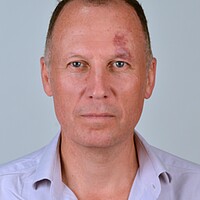Even as winter looms in Aegean, refugees brave Turkey-Greece crossing
Loading...
| Samos, Greece
Asked why he risked his life and those of five members of his family by crossing the sea in a rubber dinghy from Turkey to Greece, Ghassan Badar’s answer is disarmingly simple.
“Daesh [an Arabic acronym for the Islamic State] has taken our town," he says. "It’s all damaged by bombs. People’s houses are destroyed and they have had to leave.”
His hometown of Deir Ezzor, which lies on the banks of the Euphrates, was now almost empty after terrified civilians fled the advance of the Islamic terrorist group, Mr. Badar says.
He and his family, including two children, were soaking wet when they arrived on Samos, one of the Aegean holiday islands that has borne the brunt of this year’s unprecedented exodus of more than half a million refugees from Syria, Iraq, Afghanistan, and elsewhere.
They had been at sea in the dinghy with about 50 other Syrians for six hours when it started taking on water and began to sink in the darkness. They were lucky to be rescued by a patrol boat from the Greek Coast Guard. “We are tired so much. All night there was big trouble for us. The children were very scared,” he says.
They may be exhausted and traumatized, but at least they made it to Greece alive. Many others did not. More than 50 refugees, including many babies and young children, have drowned in the last few days after their unseaworthy boats capsized.
Yet despite the deaths, the refugees keep coming. They know full well the risks they run, but they say that the situation is so bad in their home countries that they are left with no alternative.
The International Rescue Committee, a US-based humanitarian organization working in war-torn countries around the world, recently conducted a survey of 800 Syrian refugees who are planning to make the journey to Greece.
The poll found that rough winter conditions will not deter their exodus – refugees said they would either come by sea regardless, or try crossing Turkey’s land border with Greece, or wait out the bad weather until spring. Only eight percent said they would return to Syria if the sea crossing looked too risky.
“Winter and rough seas won’t stop desperate people from trying to reach Europe. [But] in the winter, seas will become much more treacherous, likely resulting in greater numbers of deaths,” said the IRC.
In the southern Mediterranean, the mass exodus of migrants from Libya traditionally slows almost to a halt during the winter months, when rough weather makes the long sea crossing to southern Italy much more hazardous. But in the Aegean, the desperation of refugees and the fact that the journey by sea from Turkey is much shorter, means that arrivals are likely to continue even through the winter months.
“If the situation remains so difficult at home, Syrians will keep leaving. There is no other choice. They want to find safety, that’s all,” says Badar, as his children shivered on the dockside in the early morning cold. “We are risking death to find peace – we do it even with our children, these little flowers.”








